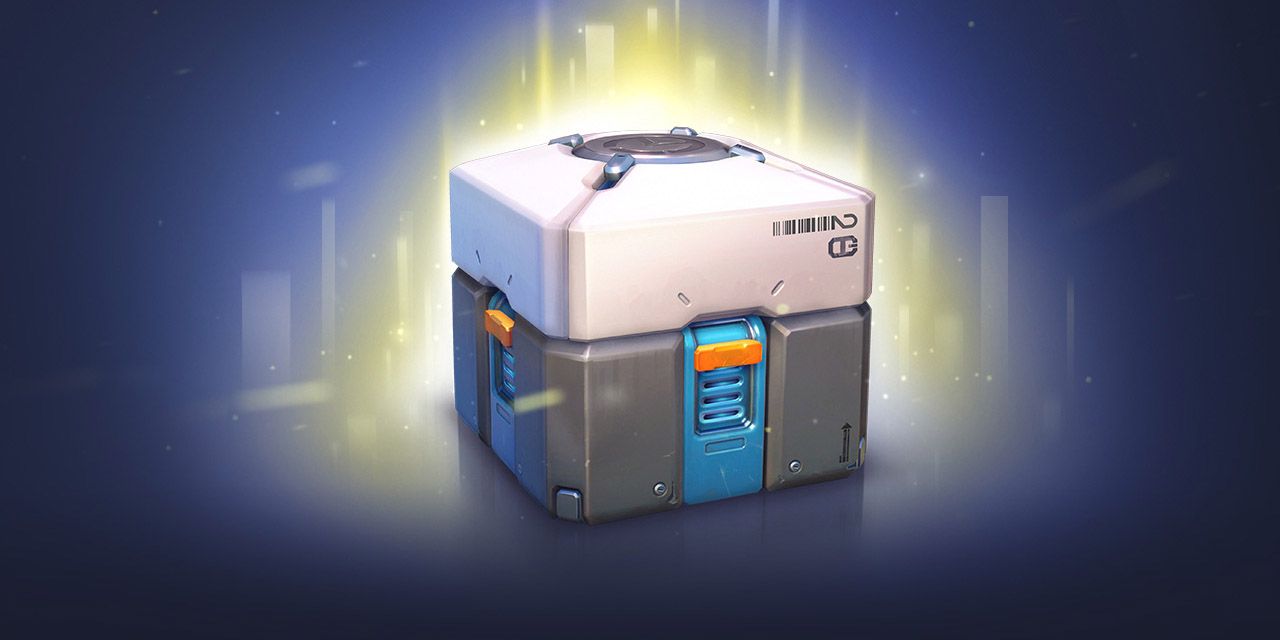Loot Boxes in video games are increasingly becoming a major problem since most major triple-A aames hitting the market in 2017 include some form of it. Games like Overwatch, Destiny 2, Forza Mortorsport 7 and now Middle-Earth: Shadow of War all use them to some degree and upcoming Star Wars: Battlefront II, Call of Duty: WWII and more will feature this controversial microtransaction system later this year as well. Gamers have taken to calling the practice a form of gambling, and now the ESRB is finally weighing in after being asked directly about it.
For the uninitiated, loot boxes are virtual crates of digital in-game items that players can unlock one of two ways. You can spend hours of real time grinding through levels hoping to earn enough points to unlock them, or - the way publishers and developers want you to -using real world cash to buy them outright. The practice of using real money to buy in-game items is nothing new, but the rise of the loot box is especially insidious. With loot boxes, buyers don’t know what exactly they're getting, as what’s inside these boxes is completely random. That’s where the gambling comes in – you’re spending real money with the possibility of getting something completely worthless to you. And in some cases, the items received can be traded for real-money (like in the cast of PlayerUnknown's Battlegrounds).
Related: Star Wars Battlefront 2 Loot Boxes Look Problematic
The ESRB doesn’t see it that way, however. Speaking to Kotaku, a spokesperson for the Electronic Software Rating Board outright states that the “ESRB does not consider loot boxes to be gambling.” The unnamed spokesperson goes on to elaborate:
“While there’s an element of chance in these mechanics, the player is always guaranteed to receive in-game content (even if the player unfortunately receives something they don’t want). We think of it as a similar principle to collectible card games: Sometimes you’ll open a pack and get a brand new holographic card you’ve had your eye on for a while. But other times you’ll end up with a pack of cards you already have.”
As Kotaku points out, the ESRB has specific criteria for gambling, broken up into two categories. “Real Gambling” is a wager involving real cash, whereas “simulated gambling” is any kind of wager in which the “player can gamble without betting or wagering real cash or currency.” The key word there is can, implying the ESRB considers simply giving the player an option to not spend money a sort of emergency exit out of the discussion.
This is absurd.
The ratings board has always increased the rating of any game if it has gambling in it, like slot machines or poker. But now that actual, real gambling is involved, they don’t seem to mind. And make no mistake, that’s what loot boxes are – gambling. Games like Shadow of War are specifically designed to be as slow as possible, forcing the player to waste their time grinding through levels to get enough points to buy a box. The “option” to spend real money for a box and skip the hassle is made to look like an oasis in a desert. If it were really about gameplay, the system wouldn't be there. It's designed to prey on people and human psychology.
The ESRB could always change its mind, however. If enough people complain, or even if the government intervenes, they could be forced to change their tune. Right now, there’s no reason for anyone to stand up to the growing spread of loot boxes. But having the ESRB issue a statement, even one as blasé as this, is a positive sign. A discussion is starting to be had about the morality of loot boxes in $60 games, and that’s how the movement for change begins.
More: Middle-earth: Shadow of War Microstransactions Make Game Look Bad
Source: Kotaku

